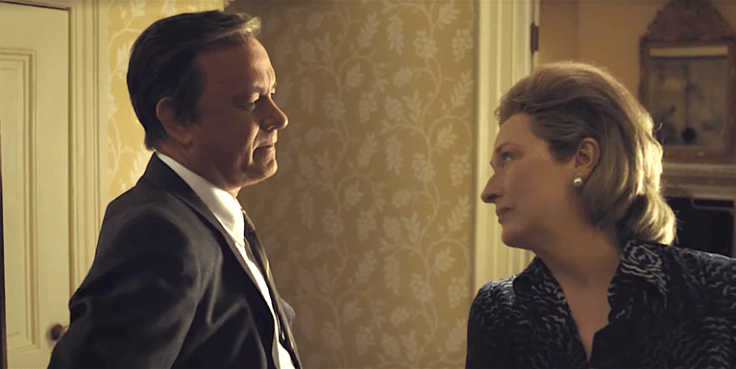Fake news is not the real problem

It’s the Internet’s fault, we’re told. Brexiters and Remainers, Republicans and Democrats — every side of every political dispute now lives in its own separate reality, bellowing “fake news!” at every attempt to breach their borders of belief. The fragmentation of the media, coupled with the filter-bubble effect and the dominance of Facebook and Google, means that we no longer share any consensus view of reality.
…But I saw The Post this week, and it struck me: we never did. We used to have an imposed view of reality, not a consensus one. As the movie makes clear, editors and Cabinet members palled around weekly, and implicitly agreed on what news would and wouldn’t be fed to the public. (See also Chomsky’s Manufacturing Consent.) The moral crisis of the time came from the realization that the government was lying to its pals in the media, and had been for a very long time.
If that sounds like ancient history, remember that Iraq was not particularly different from Vietnam: in both cases, the White House (and, this time, Downing Street) lied through their teeth to the people; the media accepted and promoted those lies; and a war which consumed hundreds of thousand of lives, and trillions of dollars, ensued. Donald Trump may be the most personally vile President of all time, but his presidency has not (at least yet) been anywhere near as catastrophic as those of Richard Nixon or George W. Bush.
However. The other assumption implicit in traditional journalism was that their job was to provide evidence to the American people, who would then judge it, adjust their views, and vote accordingly. It was assumed that people had an engineering mindset, where one’s worldview can and will be adjusted by new evidence. That mindset, that willingness to allow contrary evidence to adjust what you believe, is why science and engineering work. It is arguably why democracy works, too.
And it would work in a world of fake news. Again, falsified evidence is not new. The US government falsified (by omission) the evidence about Vietnam for a very long time. Politicized “yellow journalism” dates to at least the nineteenth century. But the assumption was that people in general would try to see its falsehoods and inconsistencies, or at least grudgingly accept their existence when they were pointed out. Fake news is a problem that could and would be fixed by a genuine, widespread, good-faith desire for true news.
The real problem isn’t fake news; it’s that people have given up on that search for truth. The real problem is that the engineer’s mindset, wherein one weighs the available evidence, and accept and incorporate new evidence even if it contradicts what you previously believed, has never been more rare. (I’m not pretending it was ever remotely universal; I’m just saying that there was enough of it, barely, for democracy to work more-or-less as intended.)
No longer. The engineer’s mindset has been replaced by the lawyer’s mindset, wherein you pick a side in advance of getting any evidence, and then do absolutely everything you can to belittle, dismiss, and ignore any opposing data, while trumping up every scrap that might support your own side as if it were written on stone tables brought down from the mountain by Moses. I mean no disrespect to the legal profession: some of my favorite people are lawyers, including the one I married. The legal approach is an excellent means of getting to the truth of hard and confrontational matters —
— assuming it is done in the court of some sort of thoughtful, knowledgeable, and relatively impartial judge. But that court doesn’t exist in a democracy, or, rather, the democracy is the court … and so, in order for democracy to work, it requires the engineer’s mindset. The UK, the USA, and other countries seem to have seen that way of thinking wither below a crucial critical mass, to their great and growing cost.
So there’s a certain irony in blaming the tech industry for this, when tech is, for all its many flaws and blind spots, perhaps the last remaining bastion where the engineer’s mindset is (at least in theory) celebrated. Maybe we are in fact to blame; I’d certainly be interested in seeing evidence to that effect.
Maybe it’s the lack of a post-Cold-War common enemy. Maybe it’s a natural evolution of a decadent empire, or a natural reaction to the increasing complexity and incomprehensibility of the world. Maybe it’s the 1% and the finance industry fomenting conflict to distract from their parasitical oligarchy. Regardless, let’s consider the distinct possibility that the so-called scourge of “fake news” is merely a symptom, not the problem.